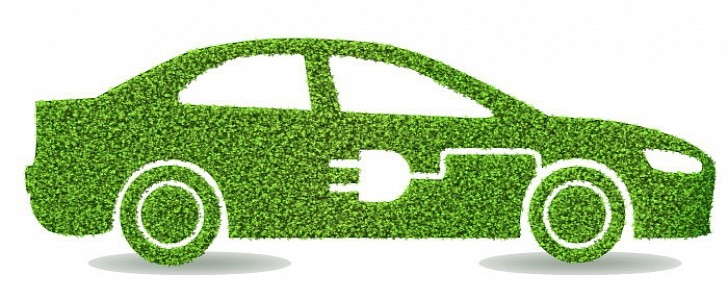The goal of wide-spread vehicle electrification can’t be reached until better solutions for energy density and charging speed are developed, and scientists are working on it. Several years ago, supercapacitors weren’t even considered a serious alternative to batteries or fuel cells, but over time they have evolved, and now there’s a new generation of supercapacitors that looks promising.
The first problem with supercapacitors, or electrochemical double layer capacitors (EDLCs), was that their energy density was too low compared to regular batteries. Then, as their energy storage capacity was increased, they became a reasonable alternative, but still too costly and dependent on critical materials, like lithium. What researchers are focusing on now is developing an innovative electrode material for supercapacitors, which would be energy-dense, but also sustainable and cheaper to obtain.
The good news is that next-generation supercapacitors might already be here. Researchers from Imperial College London and University College London (UCL) have created electrodes with a bigger energy storage capacity, based on lignin, a bio-based by-product of the paper industry. What this means is that this new material is more effective than current expensive alternatives, it doesn’t rely on lithium, which is a critical material, and it has a low production cost.
This new material is smaller and also lighter than what’s currently available, without losing energy storage capacity, making the supercapacitors ideal for short-distance electric vehicles, like buses and taxis, which can be charged fast, while the passengers are entering or exiting. The innovative idea was to press lignin nanofiber sheets together, which would reduce their volume, without affecting the porosity of the individual fibers that hold the electric charge.
With this new development, the possibility of creating a sustainable supply chain for energy technologies is closer to reality. And, in turn, this could accelerate the use of electric transportation.
The team at Imperial College London and UCL is now working on making this innovative technology commercially viable, so that next-generation supercapacitors can soon be used in real-life applications.
The good news is that next-generation supercapacitors might already be here. Researchers from Imperial College London and University College London (UCL) have created electrodes with a bigger energy storage capacity, based on lignin, a bio-based by-product of the paper industry. What this means is that this new material is more effective than current expensive alternatives, it doesn’t rely on lithium, which is a critical material, and it has a low production cost.
This new material is smaller and also lighter than what’s currently available, without losing energy storage capacity, making the supercapacitors ideal for short-distance electric vehicles, like buses and taxis, which can be charged fast, while the passengers are entering or exiting. The innovative idea was to press lignin nanofiber sheets together, which would reduce their volume, without affecting the porosity of the individual fibers that hold the electric charge.
With this new development, the possibility of creating a sustainable supply chain for energy technologies is closer to reality. And, in turn, this could accelerate the use of electric transportation.
The team at Imperial College London and UCL is now working on making this innovative technology commercially viable, so that next-generation supercapacitors can soon be used in real-life applications.

